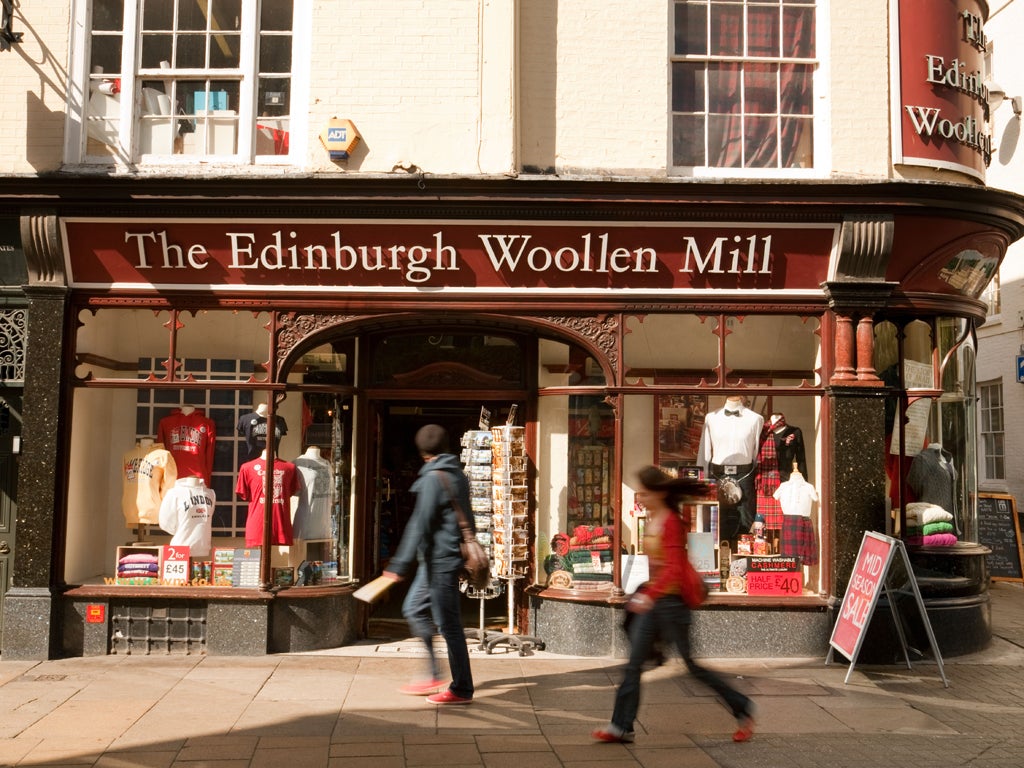Edinburgh Woollen Mill company taken to court following allegations of mislabelled cashmere products
The textile company have said it will 'vigorously defend' the accusations

A high street retailer has been accused of using cheaper alternatives in its products labelled as being pure cashmere amid wider concerns about the quality of products across the industry.
The Edinburgh Woollen Mill is awaiting a court appearance following allegations from campaigners it has mislabelled scarves, which it claims are 100 per cent cashmere.
In a statement, the company said it will “vigorously defend” the accusations, when the case goes to trial on Friday at Dumfries Sheriff Court.
The allegations fall under the textile products regulations 2012 and come after more than a million garments seized from Chinese company were found to contain rat fur.
Italian police arrested 14 people in the cities of Livorno and Rome in connection with the seizure in 2014.
The clothes, which claimed to be made of cashmere, contained "fur from rats and other animals", according to a judicial source. The products also had a mixture of acrylic and viscose in them.
Edinburgh Woollen Mill, which has 265 stores, says their products are subject to “robust independent testing” to ensure the authentic materials.
The company reportedly outsources its cashmere, but insists that its authenticity is subject to "robust independent testing" by experts.
Cashmere is reportedly being blended with sheep and yak wool among other synthetic fibres.
Speaking to the Sunday Times, Karl Spilhaus, president of the Cashmere and Camel Hair Manufactures Institute (CCMI) said: “There is a significant problem on the British high street.
“We have tested many products and found a significant amount of mislabelling.”
The CCMI say sheep wool is being blended with de-haired cashmere and is being sold as 100 per cent cashmere, following an increased demand for the fibre.
On its website, the CCMI says consumers should “watch out for so called bargains.”
“When shopping for cashmere, check the loop labels and hang tags for cashmere percentage.”
Former TV presenter Selina Scott has investigated the issue following the launch of her own ethical cashmere company.
She said cashmere goat herders were suffering as cheaper fake products are being sold as the real thing.
“It’s an absolute scam. It is a well-recognised fact in the industry that parts of the cashmere trade have been corrupted.”
Subscribe to Independent Premium to bookmark this article
Want to bookmark your favourite articles and stories to read or reference later? Start your Independent Premium subscription today.

Join our commenting forum
Join thought-provoking conversations, follow other Independent readers and see their replies